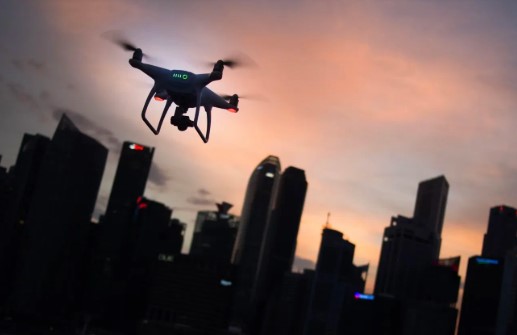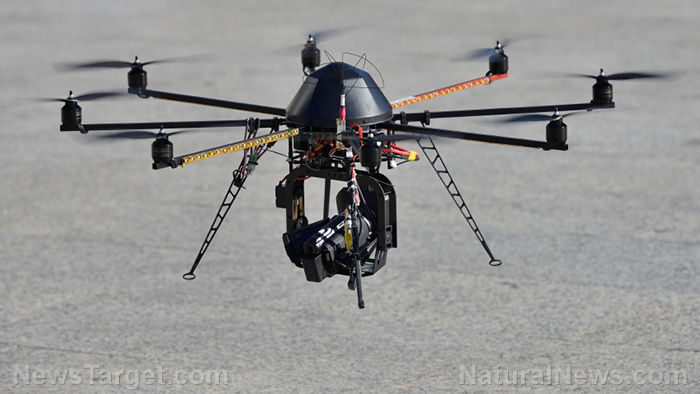AI: A dangerous necessity for national security
01/03/2025 / By Willow Tohi

- Artificial intelligence (AI) is a transformative yet risky technology, essential for national security and global leadership, with catastrophic consequences if its potential is ignored.
- The Department of Defense (DoD) recognizes AI’s revolutionary impact on warfare, exemplified by tools like the Scylla AI platform, which enhances threat detection and decision-making.
- China’s aggressive pursuit of AI dominance by 2030 poses a significant threat, making U.S. leadership in AI critical for maintaining economic and military superiority.
- The Department of Justice’s actions, such as targeting AI-driven pricing algorithms, risk stifling innovation and undermining U.S. competitiveness in AI development.
- While AI presents ethical and security risks, a robust public-private partnership and cohesive national strategy are essential to harness its potential and secure America’s future.
Artificial intelligence (AI) is a double-edged sword – a transformative technology that promises unparalleled advancements but also carries significant risks. While AI poses dangers, it is an indispensable tool for safeguarding our nation’s security and maintaining our global leadership. The stakes are too high to ignore its potential, and the consequences of inaction could be catastrophic.
The Department of Defense (DoD) has long understood the strategic importance of AI, declaring that it “will change society and, ultimately, the character of war.” This is not hyperbole. AI’s ability to analyze vast amounts of data in real time, enhance decision-making, and improve battlefield strategy is already revolutionizing national defense. For instance, the DoD’s Scylla AI platform, tested at the Blue Grass Army Depot, demonstrated its capacity to detect threats with over 96% accuracy, significantly reducing false alarms and improving physical security. Such advancements are critical in an era where adversaries like China and Russia are aggressively pursuing their own AI initiatives.
China, in particular, has made no secret of its ambition to dominate AI by 2030, aiming for “intelligence supremacy” that could leapfrog the United States’ technological capabilities. If we fail to match or surpass these efforts, we risk ceding ground in the 21st-century arms race. AI is not just a military tool; it underpins advancements in healthcare, finance, transportation, and countless other industries. Leading in AI ensures that American companies drive innovation, creating jobs and fostering economic growth.
However, while the DoD is investing heavily in AI, the Department of Justice (DOJ) is taking actions that threaten to stifle its development. For example, the DOJ has targeted companies like RealPage, accusing their AI-driven pricing algorithms of antitrust violations. Such legal actions are short-sighted and risk setting a dangerous precedent. AI’s ability to adapt pricing based on supply and demand is a hallmark of a healthy, competitive marketplace, not a violation of antitrust laws. If the DOJ continues to target AI, it could discourage industries from leveraging its full potential, leaving the U.S. at a competitive disadvantage.
Powerful tool, NOT a replacement for humans
The dangers of AI are real. Its misuse could lead to ethical dilemmas, privacy violations, and even catastrophic failures in critical systems. Yet, these risks must be managed, not avoided. Just as the internet, initially developed by the DoD, became an economic powerhouse through private sector innovation, AI’s potential can only be unlocked through a robust public-private partnership. The DoD’s investment in AI is not just about maintaining parity with adversaries; it’s about ensuring that the U.S. remains the global leader in technological modernization.
AI’s transformative potential extends beyond defense. It is already being used in industries like tourism, travel, and hospitality to optimize pricing and improve efficiency. In healthcare, AI is accelerating drug discovery and improving patient outcomes. In finance, it is enhancing fraud detection and risk management. These applications underscore AI’s role as a foundational piece of our future vitality.
The U.S. cannot afford to fall behind in AI development. If China dominates this field, American companies could be sidelined in global markets, and American workers could lose jobs in cutting-edge industries. Moreover, ethical standards for AI could be shaped by regimes that prioritize state control over personal freedoms. This is not a future we can accept.
AI is dangerous, but it is also necessary. The DoD’s efforts to integrate AI into its operations, such as the Scylla platform, demonstrate its potential to enhance physical security and safeguard critical assets. Deputy Defense Secretary Kathleen Hicks has emphasized the importance of integrating AI “swiftly and responsibly” to improve decision advantage. This approach must be mirrored across the federal government, with a cohesive national strategy that nurtures innovation rather than stifling it.
As conservatives, we must advocate for policies that balance the risks and rewards of AI. We must ensure that the U.S. remains at the forefront of this technological revolution, safeguarding our security and prosperity. AI is not just a tool; it is a force multiplier that can secure America’s future economically and militarily. The time to act is now.
Sources include:
Submit a correction >>
Tagged Under:
antitrust violations, artificial intelligence, big government, China, dangerous, dod, DOJ, future tech, Glitch, information tech, intelligence supremacy, military tech, national defense, national security, weapons tech
This article may contain statements that reflect the opinion of the author
RECENT NEWS & ARTICLES
COPYRIGHT © 2017 SURVEILLANCE NEWS


















